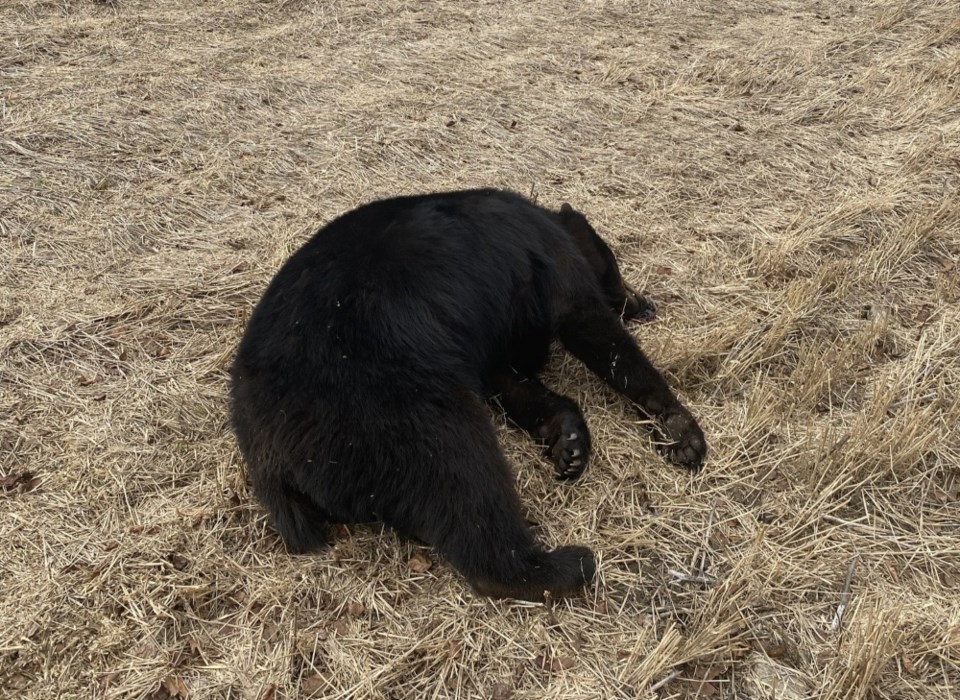SHEHO – Conservation officers are seeking public assistance in identifying the individual or individuals responsible for the unlawful killing of a black bear near Sheho, Sask.
Sgt. Shawn Raibko of the Saskatchewan Conservation Officer Service said the Yorkton conservation office received a tip on April 28 about a dead black bear discovered roughly three miles south and three miles west of Sheho.
Upon arriving at the scene, officers conducted an investigation and determined the bear had been shot once in the head. Based on their findings, authorities believe the bear was likely killed on the evening of April 27.
Evidence was collected at the location, and officials have since issued a public appeal via social media, asking anyone with information to come forward.
"In Saskatchewan, a farmer or rancher is legally permitted to shoot a black bear to protect their property, such as livestock being attacked," said Raibko in an interview with Â鶹´«Ã½AV.ca.
"However, in that situation, they are required to report the killing to a wildlife officer, who will provide guidance on the proper disposal of the animal," added Raibko.
Bears are classified as big game in the province and can also be legally hunted during the appropriate season. Hunters are obligated to place their big game hunting seals on any bear they harvest and must secure landowner permission before hunting on private land.
Raibko said investigators have ruled out both self-defence and legal hunting in this case.
"We know it wasn't a landowner protecting their property. We know it wasn't a hunting scenario," said Raibko, adding, "we believe it was simply a person or group of people driving around the countryside who saw a bear and shot it for fun."
Poaching cases involving bears are relatively uncommon, Raibko noted, as people do not typically hunt them for food. Most investigations revolve around moose, deer, and elk being illegally shot.
Conservation officers are hoping to track down those responsible for what they describe as a "senseless shooting."
"We hope that we can ultimately identify the parties responsible and hold them accountable," said Raibko.
Anyone with information is urged to contact the Turn In Poachers and Polluters (TIPP) line at 1-800-667-7561.
Springtime often sees increased bear movement across farmland as the animals emerge from hibernation in search of food. Raibko advised landowners to take proactive measures to reduce the chances of bears wandering into their properties.
"The best way to prevent human-wildlife conflicts is to be aware of food sources that may attract them," said Raibko, "people sometimes leave dog food outside or have bird feeders in their yards—those are things that can draw bears in."
"If you remove the food source you remove what's attracting them to that location. In a lot of situations, where the food source is gone, they will just typically move on," said Raibko.




